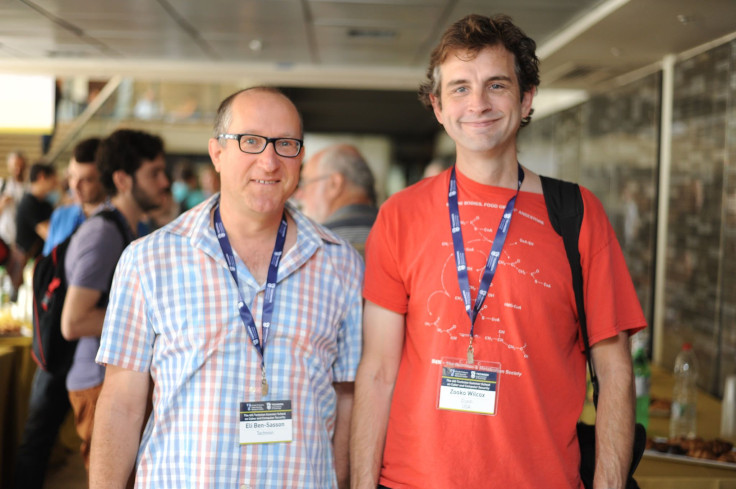How Anonymous Zcash Cryptocurrency Actually Works

Newsflash cryptocurrency newbies: bitcoin isn’t anonymous. There’s a common misconception that blockchain technologies like bitcoin and Ethereum offer privacy and anonymity. The truth is these decentralized, open source communities are actually fueled by transparency. A public bitcoin address is the digital equivalent of storing gold in a glass vault.
However, there are several rising cryptocurrencies, like monero and dash, which really do have unprecedented privacy features. Each of these blockchain networks offers unique shielding by using different technologies. Ethereum creator Vitalik Buterin sits on the advisory board of one such cryptocurrency called zcash.
Here’s what sets zcash apart from the rest: Completely anonymous transactions carrying both money and hidden messages.
According to CoinMarketCap, zcash currently sells for around $215 and has a total market cap hovering above $466 million. Unlike bitcoin, no one can know how much zcash is in someone’s account except for the owner. Right now, the zcash blockchain can handle around seven transactions per second. So it still faces the same scaling issues most blockchain networks face. However, Zcash co-founder Eli Ben-Sasson, a computer science professor at the Technion in Israel, told International Business Times the network already has untapped scaling potential carved into its building blocks.
For now, the most important thing to understand about zcash is it’s got some of the most world’s most cutting-edge privacy features. “What’s hidden in zcash is the payer, the payee and the amount,” Ben-Sasson said. “What you see is an encryption of the transaction, which holds all that information. And then you have a proof, even though you don’t see all that information, which proves the transaction is legit.”
The foundation for all of this is the concept of zero knowledge proofs. They were invented decades ago with the help of an Israeli-American woman named Shafi Goldwasser. Back when bitcoin was invented around 2009, there still wasn’t a way for these proofs to work together with encrypted data. Encryption would have kept participants from being able to verify the data on the blockchain network. Eventually, researchers found a way to use these two technologies together. Bitcoin-style transparency is no longer the only way to verify a blockchain network transaction.

“Zero knowledge proof is a way to prove to someone else that you know some mathematical construct, like you know a solution to a puzzle without letting them solve the puzzle,” Zooko Wilcox, CEO of Zcash the company (not to be confused with the nonprofit Zcash Foundation), told IBT. “I’m going to reveal some information to you that will prove I have some zcash, without revealing to you which zcash [tokens] I control.”
Zcash now combines encryption, which hides the data, with a type of zero knowledge proofs called SNARKs, which verifies it. According to Ben-Sasson, the same “succinct non-interactive argument of knowledge” proofs could someday be used to compress computations, aka help the network handle more transactions per second.
Eli ben Sasson just did a great talk on STARKs at the Technion. pic.twitter.com/X91nUdCeEA
— Vitalik Buterin (@VitalikButerin) September 12, 2017
“We’ve known how to do good encryption since World War II, it’s a really great tool for concealing data from unauthorized, prying eyes,” Wilcox added. “Now that we have better zero knowledge proofs, we can prove the transaction records in the zcash ledger are correct, without revealing the contents of those transactions.”
Anonymous cryptocurrencies are especially useful for populations struggling to avoid censorship, government surveillance or the economic ruin of a devalued national currency. Venezuela currently offers an example of all three. “A whole bunch of people have contacted me from Venezuela,” Wilcox said. The Zcash Foundation recently published a Spanish user guide specifically for Venezuelans. Zcash is now a popular tender for Venezuelan cryptocurrency miners, who can end up in jail if they get caught. “I have to take the risk for her. I have to do this for her,” a 29-year-old Venezuelan told CNBC why he turned to cryptocurrency when his government salary wasn’t enough to support his baby daughter.
Even if you don’t live in a dangerous political climate, truly private nonprofit donations and anonymous payment channels are great for all kinds of people who want to avoid discrimination, blackmail or malicious hackers. Economic freedom is about more than hidden money. If the Justice League was real and Wonder Woman needed a secure way to privately communicate with Batman, they’d need something like zcash.
Zcash also offers a nifty feature other private cryptocurrencies don’t: A hidden blockchain message. Users can send a little encrypted message along with the transaction, sort of like the “memo” line on an old school paper check. You can write a short line of text or put a link to a blog or site. So zcash is more than a currency. It’s a safe, private way to communicate through a blockchain network. This opens up all kinds of new possibilities.
Wilcox even heard of one user sending his wife an encrypted love note in the blockchain with the help of a little zcash magic. “That’s a thing that’s not possible with bitcoin,” Wilcox said. “The unique thing about zcash is it combines encryption with blockchain.”
© Copyright IBTimes 2024. All rights reserved.











